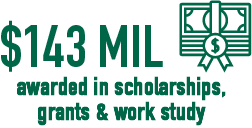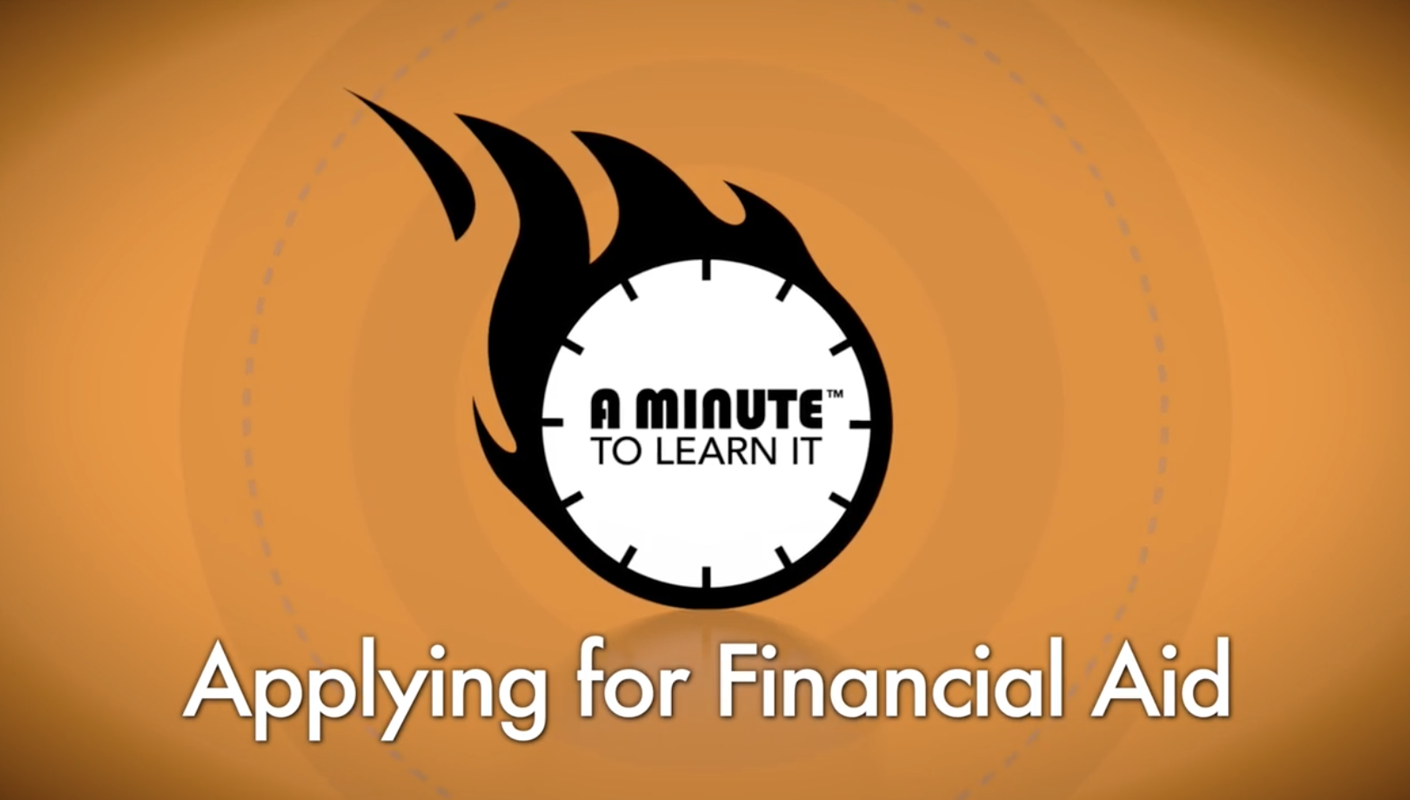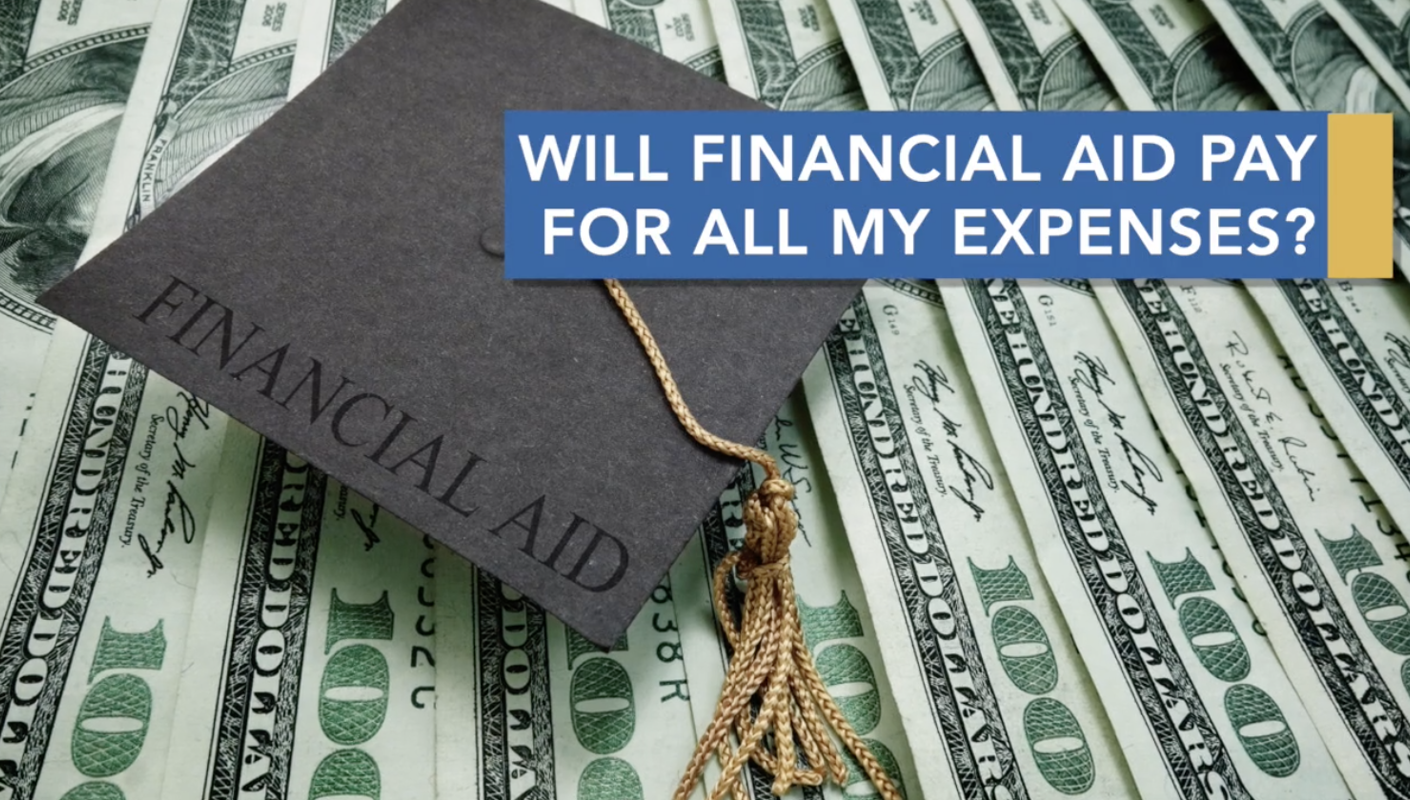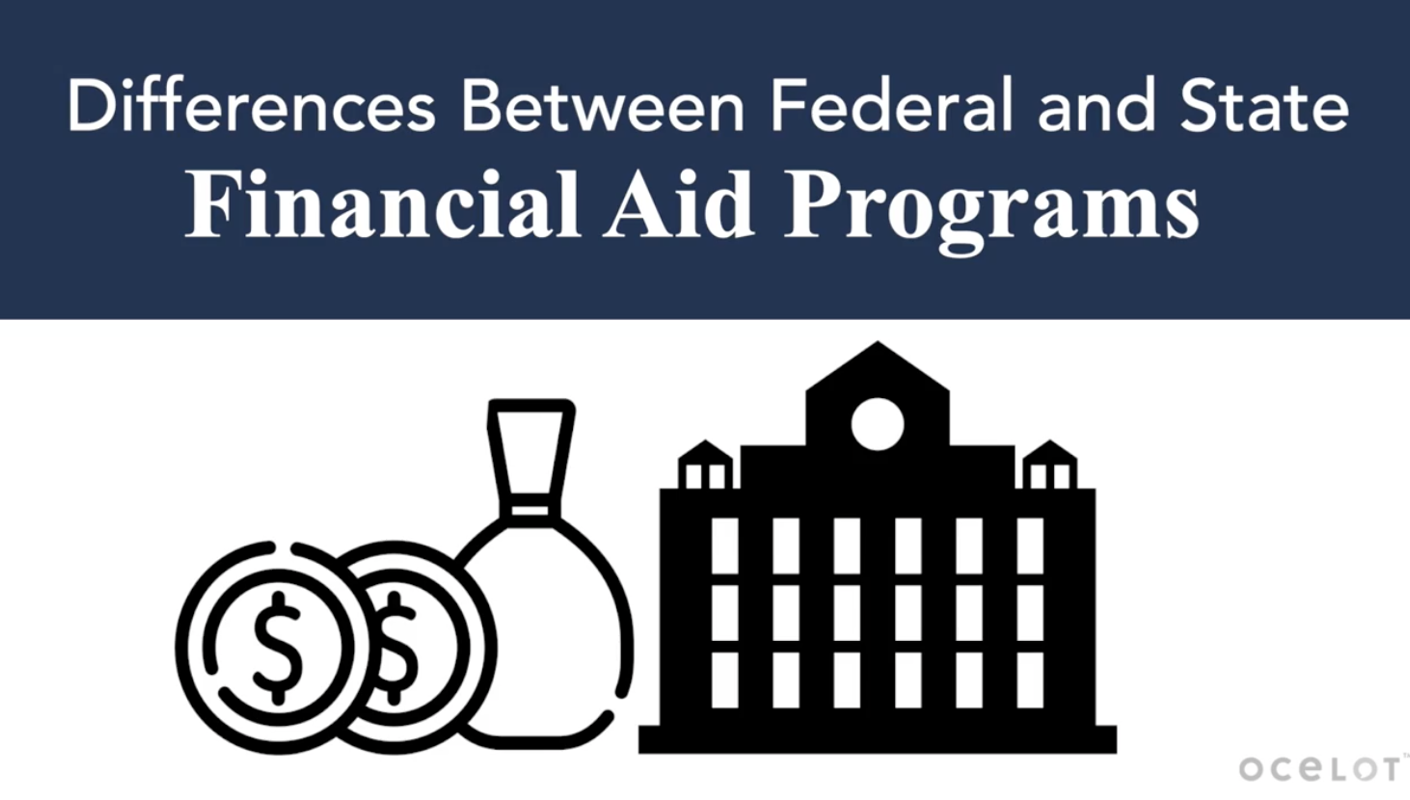Federal Eligibility Requirements
Most people qualify for some form of federal aid. The U.S. government has a set of criteria to determine who is eligible for financial aid. In addition to demonstrating financial need, you’ll need to:
-
Have a high school diploma or a recognized equivalency, such as a GED, or have completed a state-approved home-school high school education
-
Be a U.S. citizen or an eligible noncitizen with U.S. national status, or have a green card, an Arrival/Departure Record (I-94), battered immigrant-qualified alien status or a T visa or a parent with a T-1 visa
-
Have a valid Social Security number
-
Be enrolled or accepted for enrollment in an eligible academic degree or certificate program
- Meet satisfactory academic progress (SAP) standards
- Not be in default on prior student loans
View complete federal financial aid eligibility requirements
Even if you don't think you're eligible for federal aid, it's still worth taking the time to apply—which is about 30 minutes.
State Aid
State aid is financial assistance that a state—in our case, Indiana—offers to eligible residents to help reduce their educational costs. State aid often consists of grants and scholarships that have individual eligibility requirements. For example, Next Level Jobs is a program funded by Indiana's Workforce Ready Grant and has specific eligibility requirements.
To be eligible for most state aid, Indiana requires students to fill the Free Application for Federal Student Aid (FAFSA®) form. Indiana's FAFSA deadline for applying for aid from the state is April 15. Some state aid is first come, first served, so complete your FAFSA form early to maximize your eligibility.
Institutional Aid
Institutional aid is financial assistance provided by the college or university you plan to attend—in our case, Ivy Tech. The most common types of institutional aid at Ivy Tech are grants and scholarships.
Each Ivy Tech grant and scholarship has its own eligibility requirements, which may include citizenship or residency. Available Ivy Tech scholarships and grants also vary from campus to campus. In general, to be eligible for any institutional aid from Ivy Tech, you must file the FAFSA form each year.
Private Aid
Private aid is any financial assistance not awarded by the U.S. government, Indiana, or Ivy Tech Community College, such as a scholarship provided by a business, community organization, or foundation. Private funding can be found in your local community and nationwide. Every source of private aid will likely have a unique application process with unique eligibility requirements, so you'll need to do some research to find opportunities that fit your situation. Examples of eligibility requirements include financial need, academic performance, affiliation with a special interest or organization, or affinity with a cause.




















